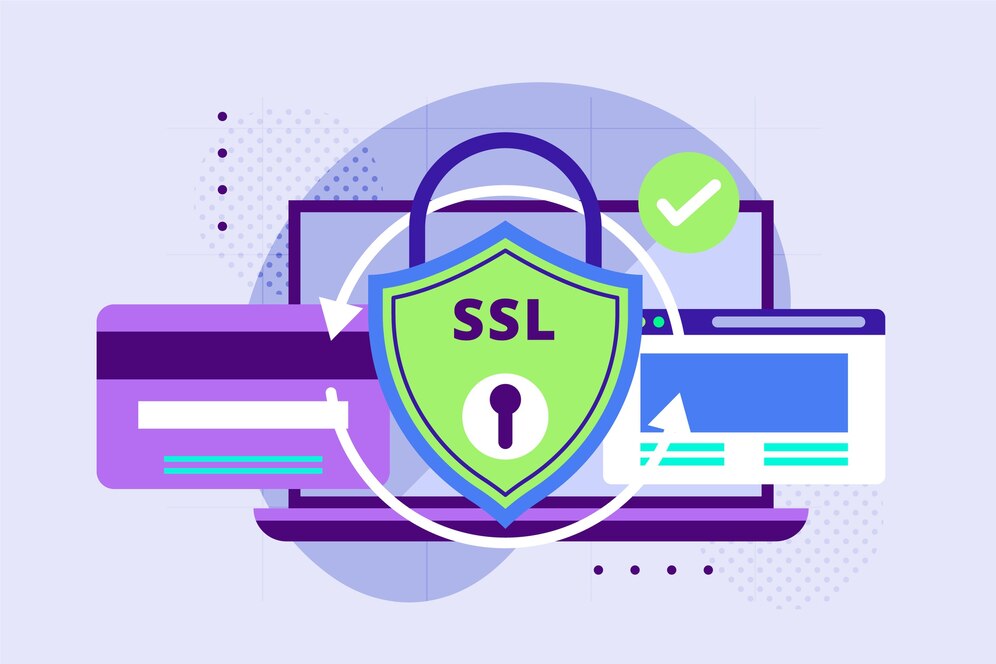Why SSL Certs Are a Must-Have in 2025
Today’s internet landscape is all about trust, security, and privacy. Whether you’re running a personal blog or managing a high-traffic eCommerce store, your website’s visitors expect their data to be protected. This is where SSL certs come in.
Short for Secure Sockets Layer certificates, SSL certs ensure secure communication between web servers and browsers. They encrypt the data being transferred, which protects sensitive information like login details, payment credentials, and contact forms from cyber threats.
But what exactly are SSL certs? How do they work? And which one is right for your site?
This in-depth article answers all those questions and more.
What Are SSL Certs?
SSL certs are digital certificates that authenticate a website’s identity and enable an encrypted connection. When a website has an SSL certificate installed, the web address changes from http:// to https://—indicating that data shared on the site is encrypted.
These certificates are issued by Certificate Authorities (CAs), which are trusted organizations that verify the legitimacy of websites before issuing the SSL cert.
SSL certs not only secure the data being transferred but also serve as a trust signal to users and search engines alike.
How Do SSL Certs Work?
Here’s a simplified breakdown of how SSL certs secure a connection:
- A browser connects to your site.
- Your server responds by sending its SSL certificate.
- The browser checks the certificate’s validity (issued by a trusted CA, not expired, etc.).
- If everything checks out, an encrypted connection is established using public-key cryptography.
- All data transferred from that point forward is protected from interception or tampering.
This process is known as the SSL handshake, and it happens in milliseconds—without the user even noticing.
Why SSL Certs Are Important
SSL certs are no longer optional—they’re a fundamental part of any serious website’s infrastructure. Here’s why:
✅ 1. Data Encryption
They encrypt data, making it unreadable to anyone who might intercept it.
🛡️ 2. User Trust
Users are more likely to engage with and buy from websites marked as secure.
🔍 3. SEO Benefits
Google gives ranking preference to secure (HTTPS) sites over unsecured (HTTP) ones.
🖥️ 4. Browser Compatibility
Modern browsers like Chrome display warning messages for websites that don’t use SSL certs.
💳 5. PCI Compliance
If your site handles credit card information, SSL is required to comply with PCI DSS standards.
Types of SSL Certs
There are several types of SSL certs designed to meet different needs. Choosing the right one depends on your site’s structure, size, and security requirements.
🔒 1. Domain Validated (DV) SSL Certs
- Validation Level: Verifies only the domain name
- Issuance Time: Minutes
- Best for: Blogs, portfolios, small business websites
- Price Range: Free – $50/year
🏢 2. Organization Validated (OV) SSL Certs
- Validation Level: Verifies both the domain and business entity
- Issuance Time: 1–3 days
- Best for: Company websites, small eCommerce sites
- Price Range: $50 – $200/year
🧾 3. Extended Validation (EV) SSL Certs
- Validation Level: Full legal verification of the organization
- Issuance Time: 3–10 days
- Best for: Large corporations, financial institutions, high-trust websites
- Price Range: $150 – $500+/year
🌐 4. Wildcard SSL Certs
- Purpose: Secure a domain and all its subdomains
- Example: *.yourdomain.com protects www.yourdomain.com, store.yourdomain.com, etc.
- Best for: Businesses with multiple subdomains
- Price Range: $50 – $600/year
📚 5. Multi-Domain SSL Certs (SAN)
- Purpose: Secure multiple domains with a single cert
- Best for: Web hosting companies, agencies, or site networks
- Price Range: $30 – $800/year
Free vs Paid SSL Certs
💡 Free SSL Certs
Providers like Let’s Encrypt offer DV SSL certs for free. These are ideal for personal projects, blogs, or informational websites that don’t collect sensitive data.
Pros:
- Free of charge
- Easy to install on most hosting platforms
- Automated renewal (with the right setup)
Cons:
- Only offers Domain Validation
- Limited support
- 90-day validity (frequent renewals)
💳 Paid SSL Certs
Paid certs offer extended features like:
- Organization/Extended validation
- Warranty coverage
- Advanced encryption
- 24/7 customer support
Best for: Businesses, eCommerce stores, websites dealing with personal or payment data.
How to Install SSL Certs
While installation steps vary by host and platform, here’s a general outline:
- Purchase or generate your SSL cert.
- Download the certificate files (including private key, CA bundle).
- Log into your hosting control panel.
- Navigate to SSL/TLS settings.
- Install and activate the certificate.
- Force HTTPS sitewide using redirects.
- Test your certificate using tools like SSL Labs.
Many hosting providers offer 1-click SSL installation, especially for Let’s Encrypt.
How Long Do SSL Certs Last?
As of recent regulations, SSL certs now have a maximum validity of 1 year (398 days). Many providers offer auto-renewal, which helps avoid service disruption and site errors.
Be sure to monitor your cert’s expiration date. Letting it expire can result in broken pages, lost traffic, and security warnings.
Conclusion: SSL Certs Are the Foundation of a Secure Web
In a digital world where trust and privacy are everything, SSL certs are the first line of defense for your website. Whether you’re launching a personal blog, securing customer transactions, or building a web empire—there’s an SSL cert for every need and budget.
Understanding the different types of SSL certs, what they cost, and where to get them gives you a powerful advantage. It ensures that your visitors feel safe, your SEO remains intact, and your brand continues to thrive in a secure online environment.

